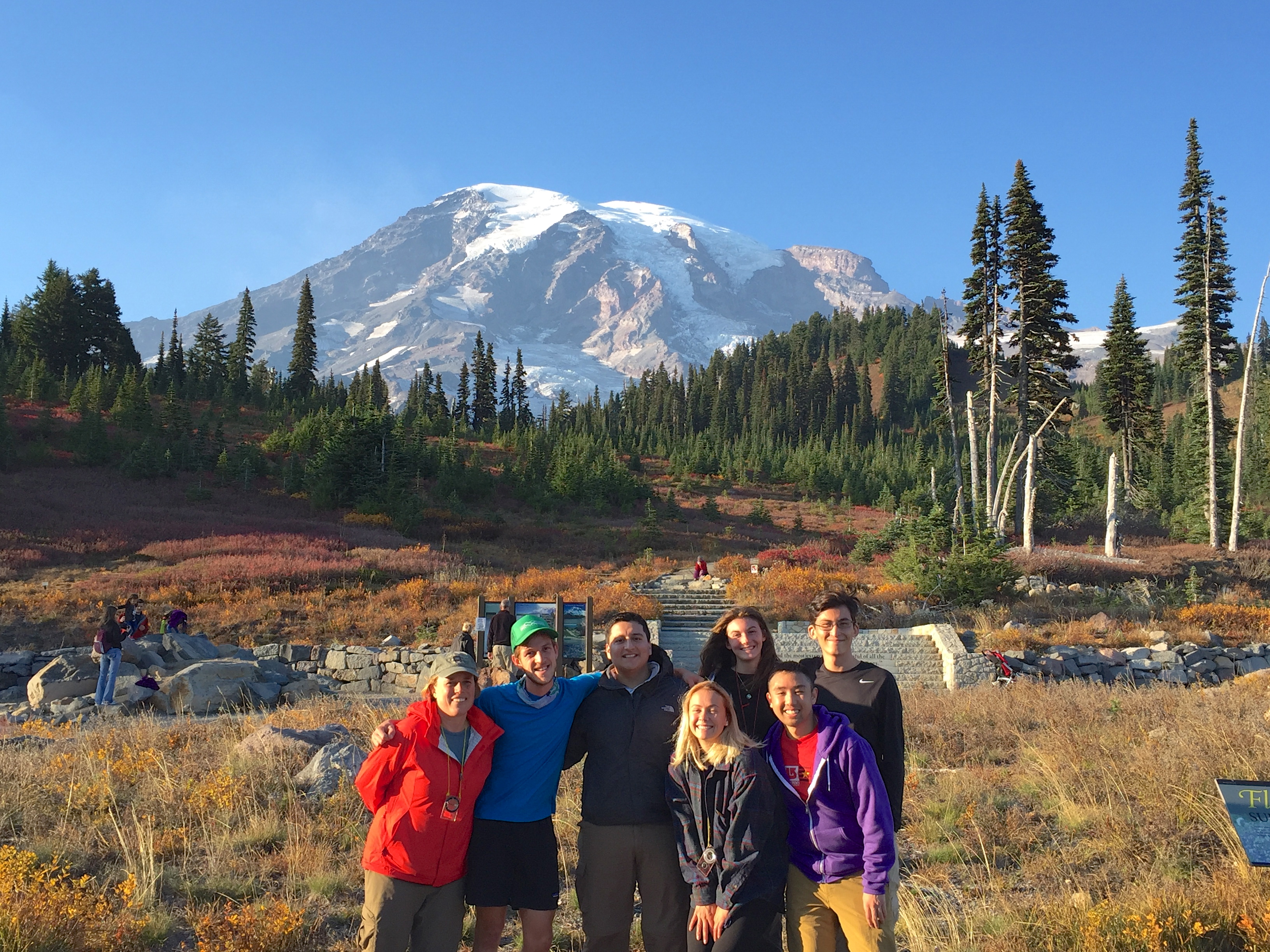
| HOME | PEOPLE | RESEARCH | TEACHING | PUBLICATIONS | POSITIONS |
Bio180: Introductory Biology - Ecology, Evolution and Diversity
I often co-teach Bio180 evin Winter quarter. This introductory course covers three broad topics; i) the principles of evolution, ii) the origin and diversity of life on this planet; and iii) the fundamentals of ecology. Please see the course website for more details.
Bio315: Biological impacts of climate change
Climate change is one of the most profound problems of our times, influencing every aspect of the world around us. This course focuses on biological impacts of climate change, such as changes in species distributions, altered species interactions, phenology (timing of life events), and ecosystem dynamics. The implications of these biological impacts for society, including food security, public health and the management and preservation of our natural resources are also discussed. This course consists of lectures and weekly dicusssions of scientific articles, as well as a group presentation or term paper.
 Bio472: Community Ecology
Bio472: Community EcologyCommunity Ecology is an upper division course covering the ecology of interacting species; both the nature of those interactions (e.g. competition, herbivory) and the patterns that emerge from them (diversity, invasibility, ecosystem function). The study of community ecology is particularly relevant to understanding how human actions (elevated CO2, deforestation) affect the abundance and distribution of species in the world around us. Class time is composed of lectures and the discussion of primary literature. In the lab, we collect plant ecological data in the field (during field trips to local natural areas - e.g. Mt. Rainier National Park), and then devote the rest of the quarter to processing those sampes and analyzing the data we collected.
Bio506: Scientific Manuscript Writing
A core scientific skill is communicating the hard-won results of your research to the scientific community by publishing articles. Unfortunately, paper writing can be extremely stressful and difficult, even for the most seasoned of writers. What is the first thing you should write in that scarily blank word document that will become your paper? What journal should you aim for? How should you best design your figures and tables to illustrate your points? What if you’re not sure what your main points are? How can you pitch your introduction and discussion to appeal to a broad audience? We will tackle all these questions, and more, while you write (and submit) a scientific paper in this graduate level course. A requirement for recieving a grade in this course is the actual submission of a scientific manuscript, so grad students interested in taking this course should be ready to start writing (i.e. all data collected, analyzed, main findings clear).
Bio 560: Ecoseminar
Ecologists in the Biology department meet on Fridays at 9:30 am in Fall, Winter and Spring quarters to discuss relevant ecological topics. The course is drive by graduate student interest and participation, although faculty attend. In Winter and Spring quarters, the topic for the quarter are chosen by a graduate student(s), who determines the reading list and order in which topics are discussed (with guidance from faculty members). Fellow graduate students sign up to lead the discussion each week. Recent topics include “Niche vs. neutral ecology”, “Anthropogenic effects on ecology”, “Large-scale ecological patterns” and “Foundational papers in Ecology”. In Fall quarters, ecoseminar is affectionately called “Painebull”, and the topic of discussion is chosen by Jennifer Ruesink and Bob Paine.
Bio 561C: Hille Ris Lambers Lab group
Topic varies by quarter. In the past, we have i) read and discussed recent literatures; ii) presented the results of ongoing research to each other; and iii) nominated papers for the Mercer Award. Contact me if you are interested in participating.
R Workshops
March 15, 2018 (Dunedin)
Slides
March 22, 2018 (Dunedin)
Slides
March 29, 2018 (Dunedin)
Slides
University of Washington
Seattle WA, 98195-1800
jhrl@uw.edu, 206-543-7389